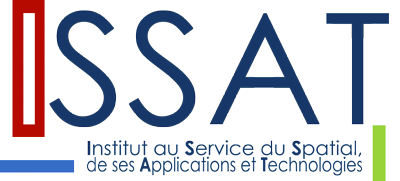aller au menu | aller au contenu


Space applications
training courses
Courses
Master Oceanography
- Organisation : Faculté des Sciences - Université de Liège
(Université de Liège) - Way of training : Initial education
- Language(s): French, English
- Place: University of Liège - Belgium (French Regions: Europe)
- Prepared diploma/grade/title: Master or DNM: French National Master Degree
- 1st required level : French baccalauréat + 3
Course Details
Objectives : This master gives an overview essential for those who wish to specialize in the field of marine science training covers the fields of physics, biology, chemistry and marine geology. This multidisciplinary approach is needed for research, management and modeling of the ocean, an essential element of the terrestrial environment.
5 options:
Biogeochemistry and climate change,
Marine ecology and biodiversity,
Exploitation of marine resources, anthropic pressures,
Modelling and operational oceanography,
Data collection and processing.
Public concerned : Students
Degree Level (EU) : 7 - (EQC level or equivalent)
Admission requirements : Bachelor 3
Acquired skills during the training : learning outcomes
At the end of his training, the graduate of the master's degree in Oceanography will have acquired the following specific disciplinary skills:
- Plan and carry out scientific research in the marine environment, including the use of bibliographical resources, the experimental approach, the statistical analysis, the interpretation and discussion of the results in an environmental context, in particular through knowledge and analysis of the orders of magnitude;
- Master the concepts and vocabulary of all oceanographic disciplines and be able to share them in different contexts (teaching, research, conference, international projects);
- Analyze the biotic and abiotic components of a marine environment, using the in-depth knowledge of oceanography and specialist knowledge acquired during the completion of the end-of-studies work;
- Handle sensors and measuring devices, and prepare and analyze samples used in oceanography.
At the end of his training, the graduate of the master's degree in Oceanography will also be able to:
- Understand the functioning of a system through observation, acquisition, data analysis and modelling;
- Being able to design and use a mathematical model.
Like all university graduates, the young oceanographer will also be able to:
- Autonomously manage learning with self-assessment and reflexivity;
- Have a working method allowing the acquisition of new knowledge and adaptation to new situations;
- Acquire skills of synthesis, oral and written scientific communication;
- Critically analyze scientific data and literature;
- Knowing how to separate the essential from the accessory in a scientific problem;
- Work in a team, define and develop your professional identity.
Duration and terms : 120 crédits
Dedicated web site : https://www.programmes.uliege.be/cocoon/20232024/formations/bref/S2UOCE01.html
Applications
- Environment and Land Management (Environmental protection, agriculture, biodiversity, climate changes; Resources, land-use planning, infrastructures)
Space Technologies and Scientific Disciplines
- Earth observation (Remote sensing, GIS, geomatics)